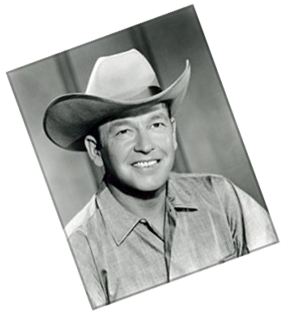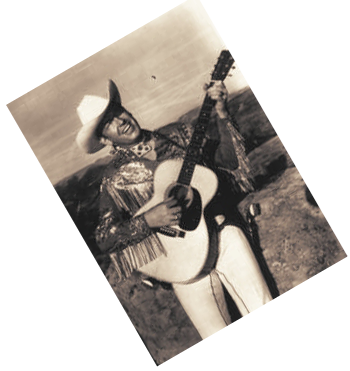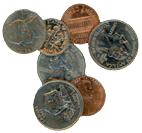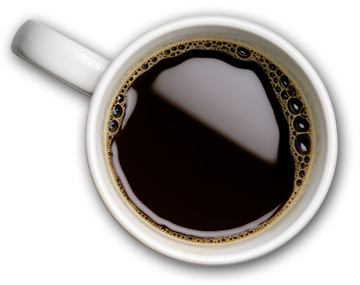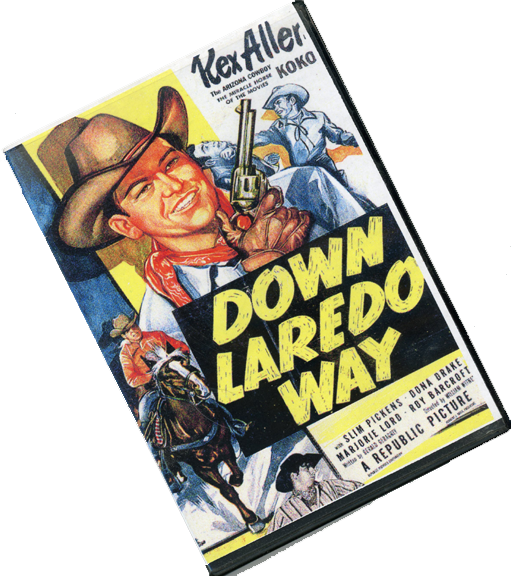



WILLCOX Cowboy Hall of Fame inductees
CALEB MARTIN (30)
1909 -
1991 COWBOY HALL OF FAME SPECIAL AWARD
The following biography was written at the time of Mr. Martin's award.
Some people will tell you the romance of the cowboy is a myth, but that's not what you'll hear from Caleb Martin. He will talk about raising calves and gelding horses and fight in bars. Not a romantic time in U.S. history, mind you. He's just talking about his whole life, pure and sweet and simple.
That's odd, because there's something of the myth ingrained in the way Caleb Martin looks and talks. And when he speaks of one of his deceased sidekicks, he can pay no higher compliment than "he was a cowboy."
Martin was born in Willcox in 1909. By that time, however, his family had already established itself on the range. Martin's grandmother was a slave who escaped from Mississippi and came to Arizona and opened up a mess hall, then started running a milking dairy at Fort Grant. "My dad was born in Fort Grant," Martin said. "He was 79 years old when he died. He was a good cowboy, too."
The first few years of young Caleb's life were spent on the homesteads his father and grandfather established between Fort Grant and Stockton Pass, and he moved with them down to Bonita when they sold their land.
"I started cowboying back when I was so small my dad had to put me on my horse," Martin said. His specialty was horses-in particular, breaking and gelding them. He also helped build the road through Stockton Pass, plowed ground, cut hay for workhorses and did other odd jobs demanded of any ranch worker in those days. He never did any soldiering because he ran into some brush and damaged one of his eyes.
While he was still a young man, Martin moved into the Dos Cabezas Mountains to join Ned Hall's ranch, where he worked for many years, "We used to work hard and have a little money," Martin said, comparing his past and present lives. "Now it's a strain to try to get ahead."
The life of a cowboy was a good one, he said. "We used to sit at night and tell big tales. They was happy, those cowboys, though the work load of a cow camp might be to brand an incredible 250 calves a day, all on the open range. The only secret to being a cowboy is to just take the trouble to learn it, and be content in one's small world of accomplishments under the big sky.
"There was no prejudice," he said, noting that the Martins were the first black family in Willcox area. "Everybody was the same. It's a lot different now," he added.
Martin's lanky cowboy body isn't too badly stored-up, he said, because he looks after himself. He admitted to being part of a few barroom brawls, but he said he normally didn't stay out late or mess around with women. He didn't have to. "I've been married six times," he said, and had no children. He had a girlfriend, but he recently "separated with her."
Life is still good, he said, even on his small Social Security check. He has been back in Willcox since 1959; he would spiritually "starve to death any other where."
All he has left of his cowboy days are his chaps, spurs and bridle. The Willcox Livestock Auction lends him a horse and saddle every Thursday so he can haze cattle at the weekly auction. He does it for the money, not out of a need to live in the past.
These old cowboys develop a tremendous amount of self-respect that carries them through the waning years. Martin is content to collect a few aluminum cans for extra cash, share his good fortune with other men of little means and continue to take care of and be content with himself.
"I'm happy," he said. "I am happy."

